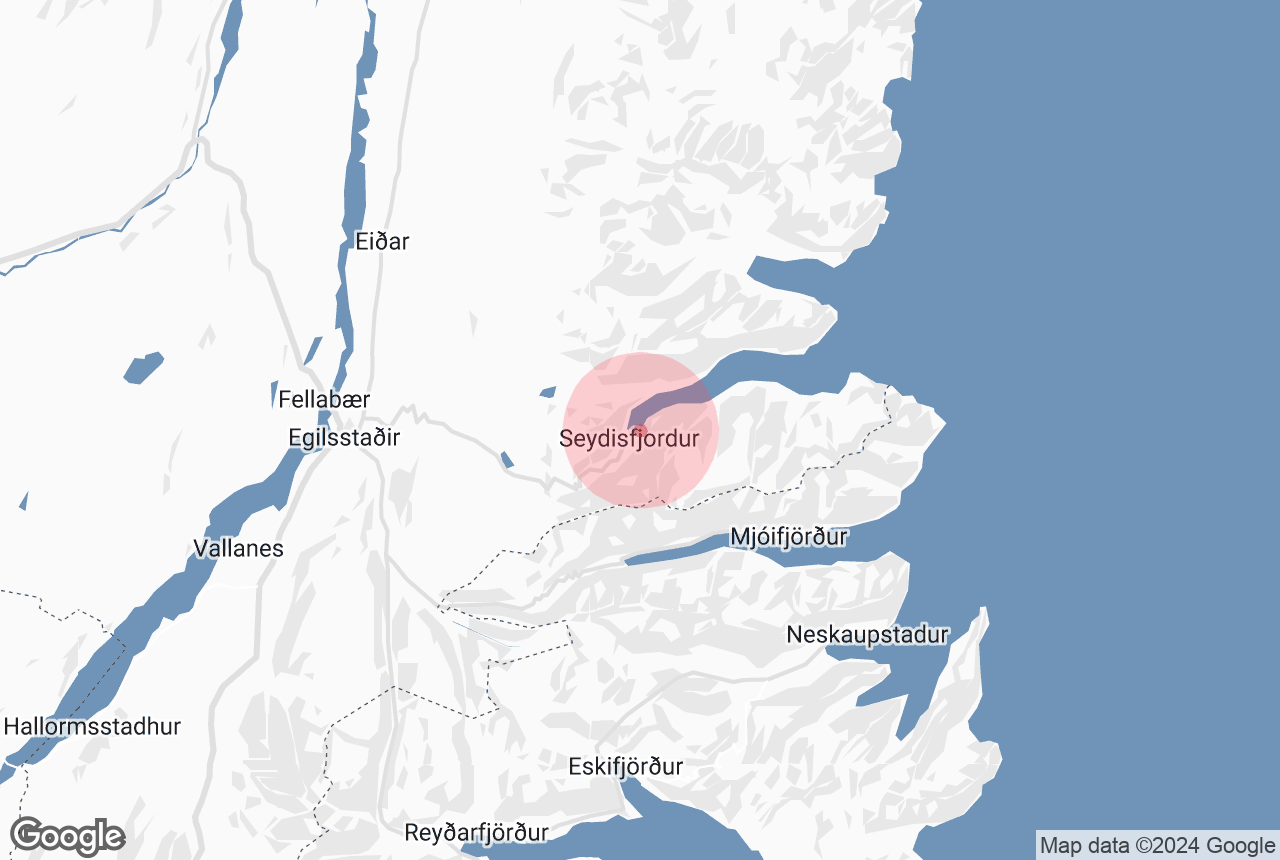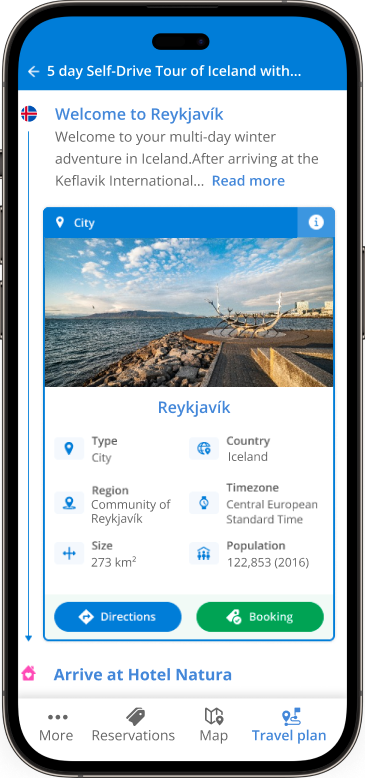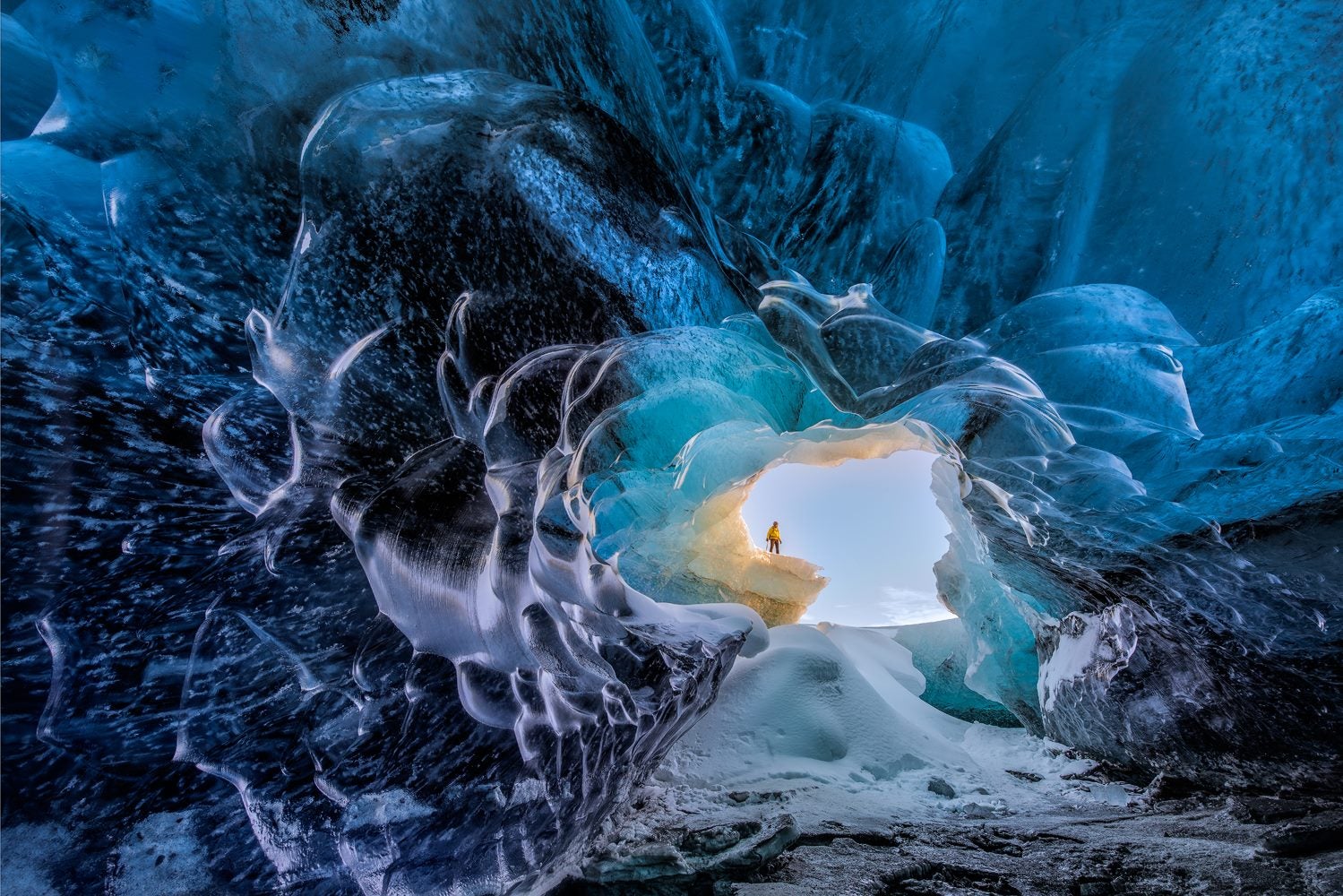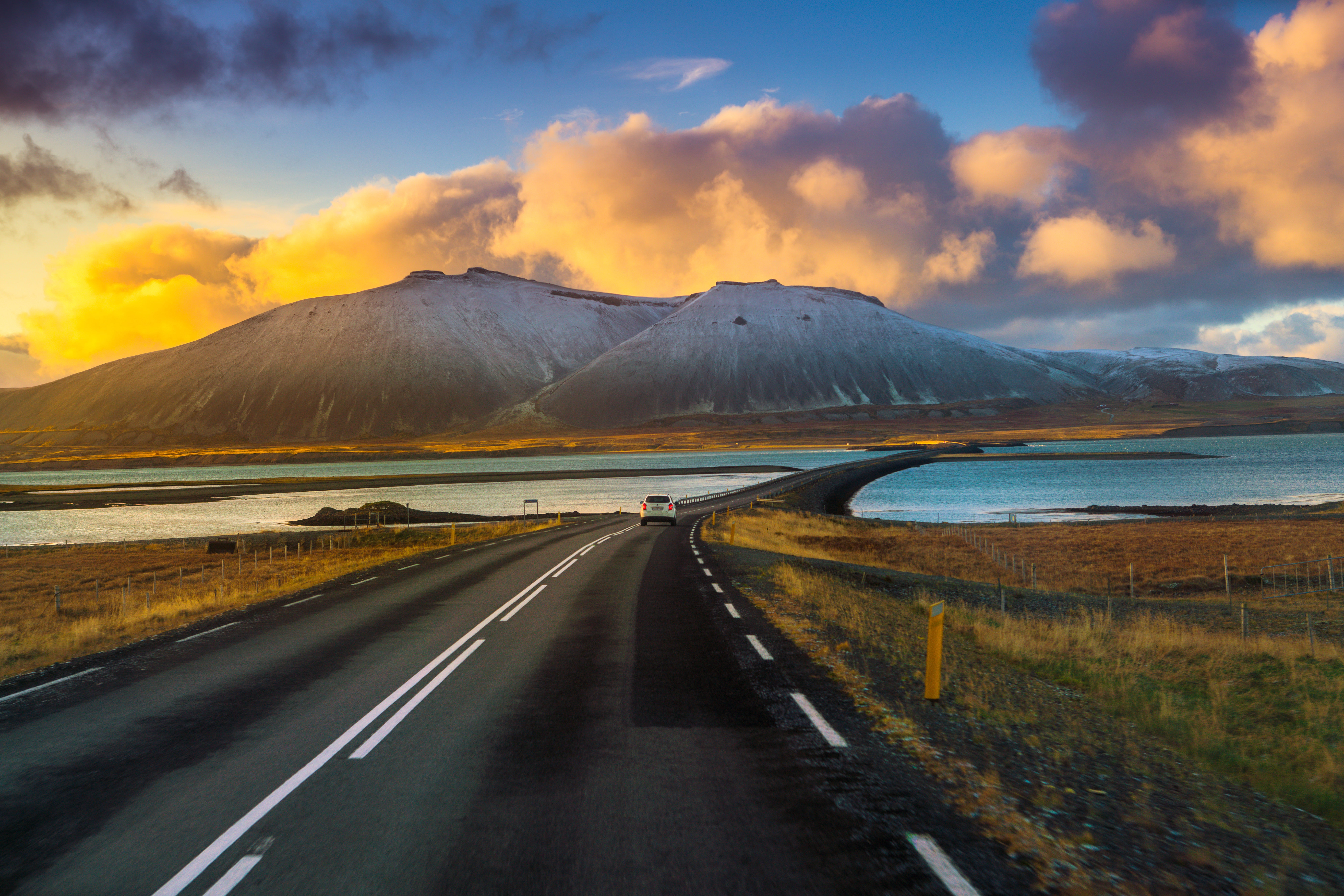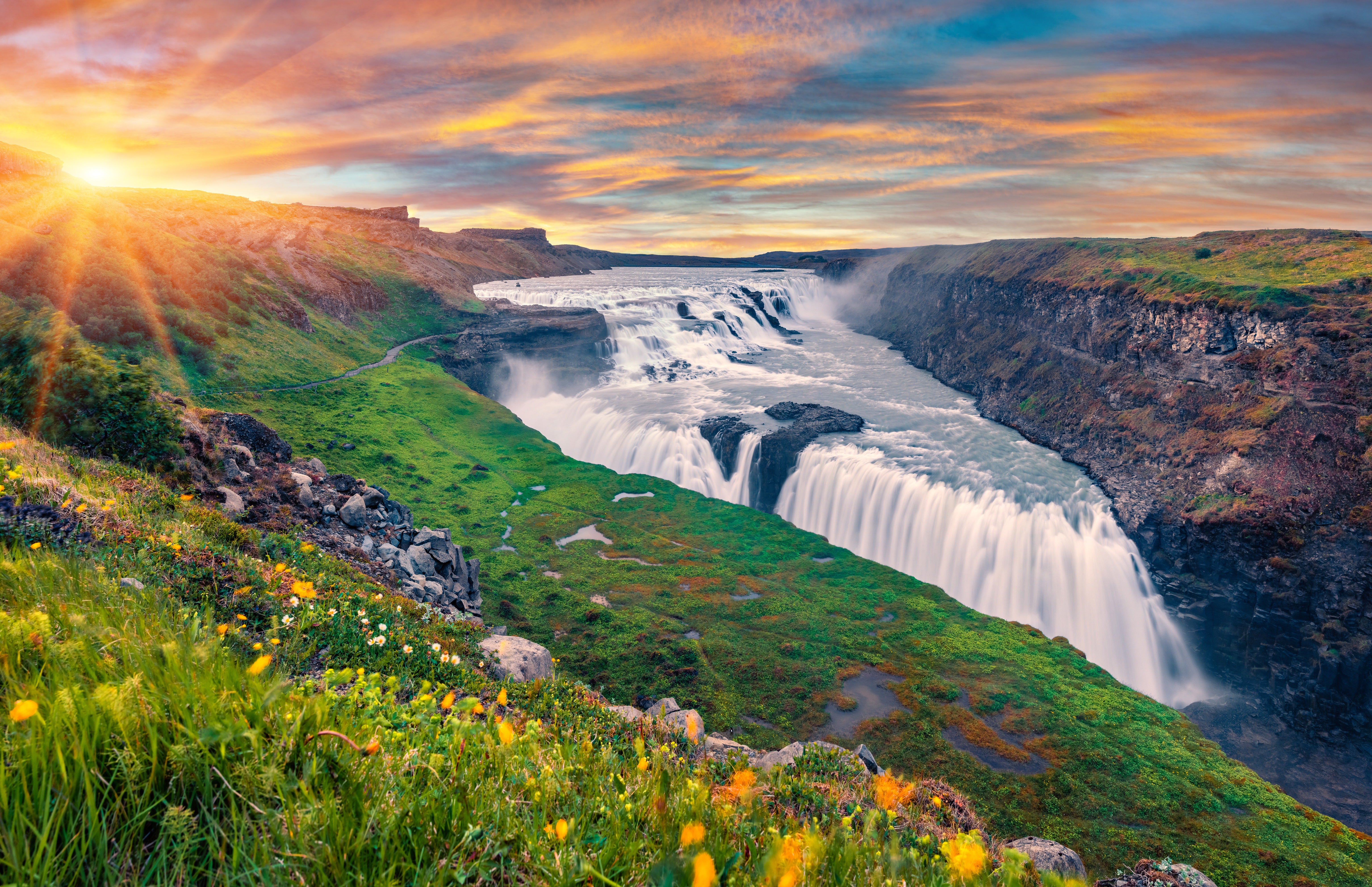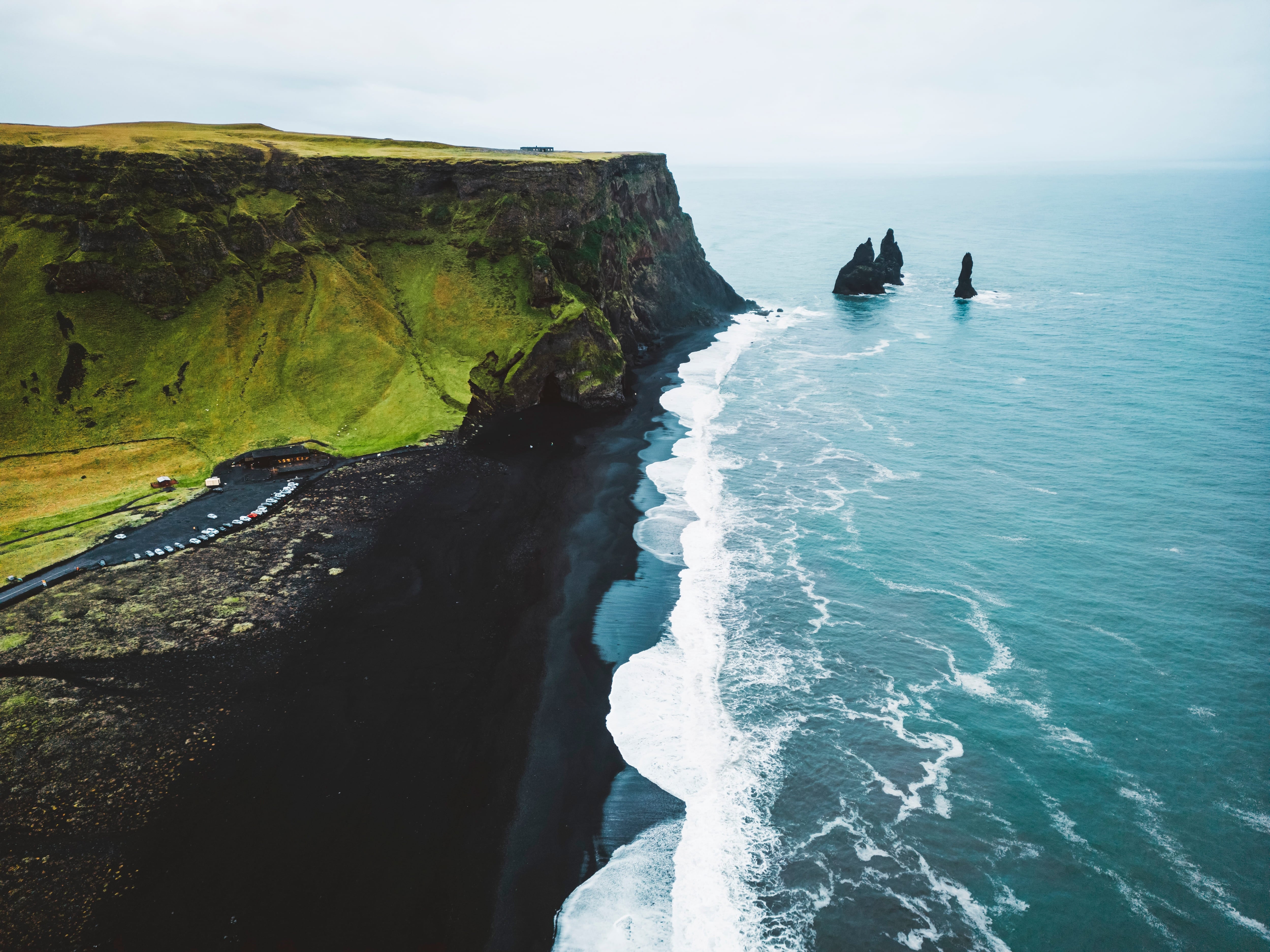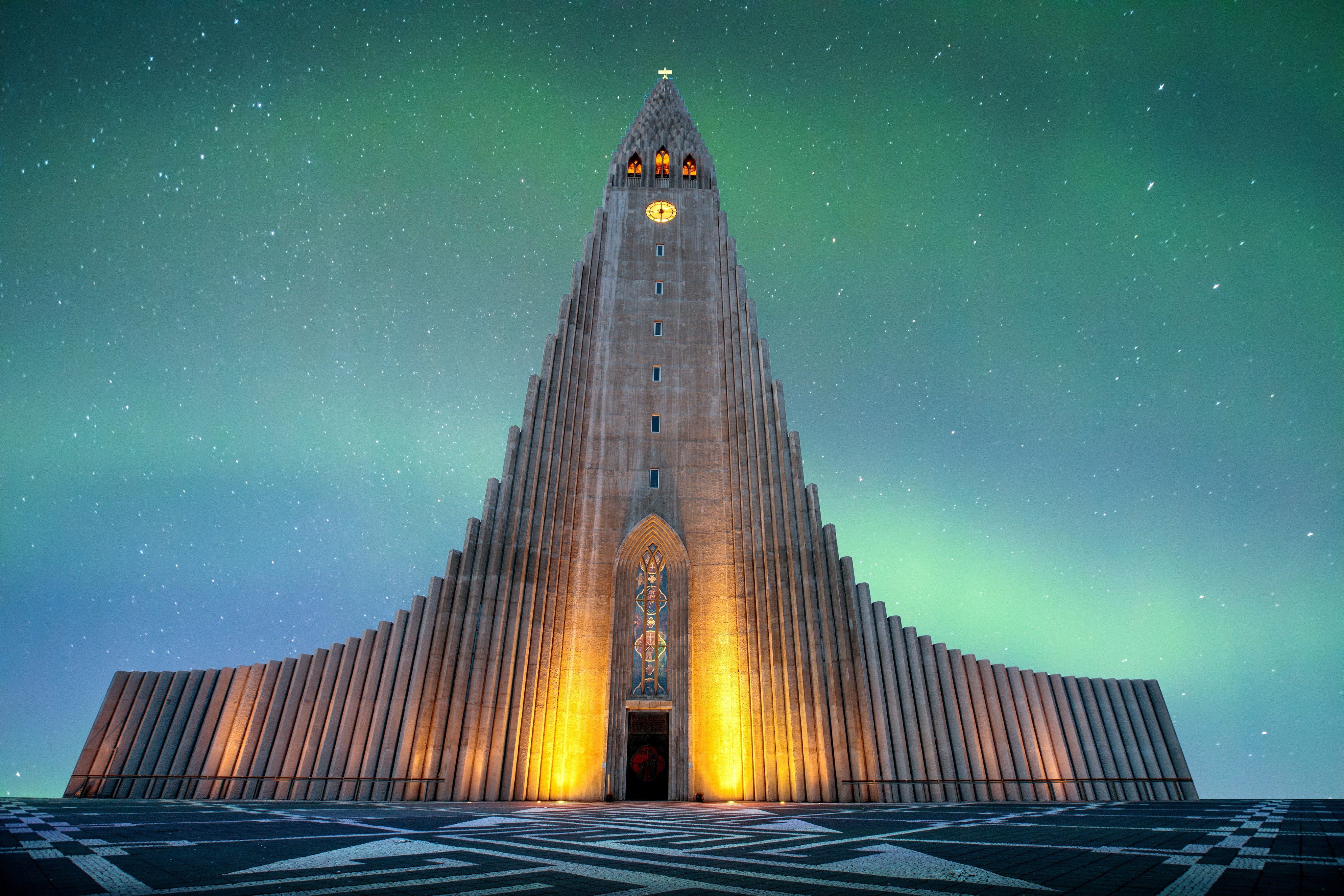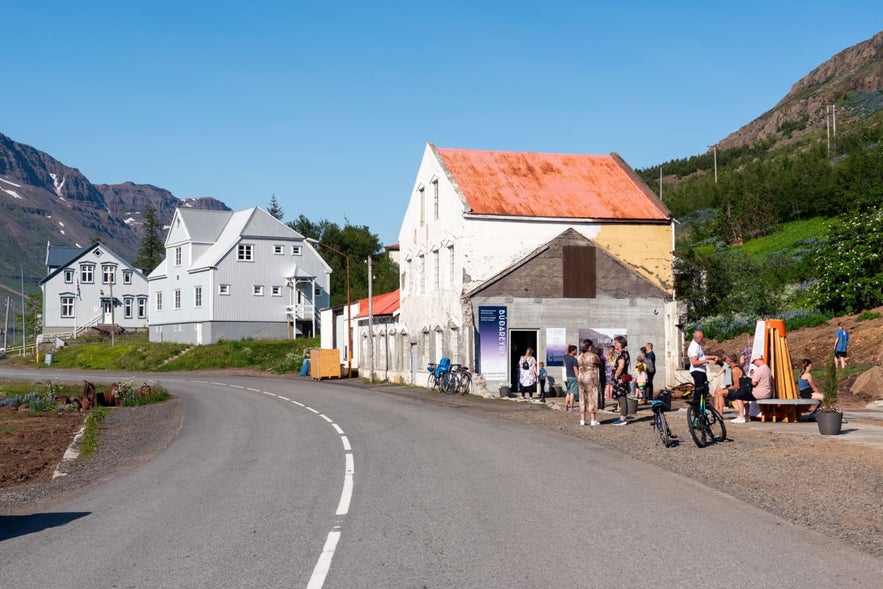
Locally known as “Tækniminjasafn Austurlands,” the Technical Museum of East Iceland highlights Iceland’s development in telecommunications, engineering, mechanics, architecture, energy generation, printing, and craftsmanship.
At the height of the museum’s popularity, it spanned several historic buildings and hundreds of artifacts. However, a tragic landslide in 2020 buried most of these collections and several other houses in town. This incident changed the trajectory of the cultural attraction and the town’s history.
Why You Can Trust Our Content
Guide to Iceland is the most trusted travel platform in Iceland, helping millions of visitors each year. All our content is written and reviewed by local experts who are deeply familiar with Iceland. You can count on us for accurate, up-to-date, and trustworthy travel advice.
Efforts to rehabilitate the Technical Museum of East Iceland are still in progress. Some of its exhibitions are already open to the public through physical and virtual tours. Travelers can easily locate the museum as it is less than a mile from the town center.
You can visit Seydisfjordur by renting a car or joining self-drive tours in Iceland, like this 11-day Ring Road of Iceland self-drive tour with the Eastfjords.
Photo of the Technical Museum of East Iceland from VisitAusturland.
What is the Technical Museum of East Iceland?
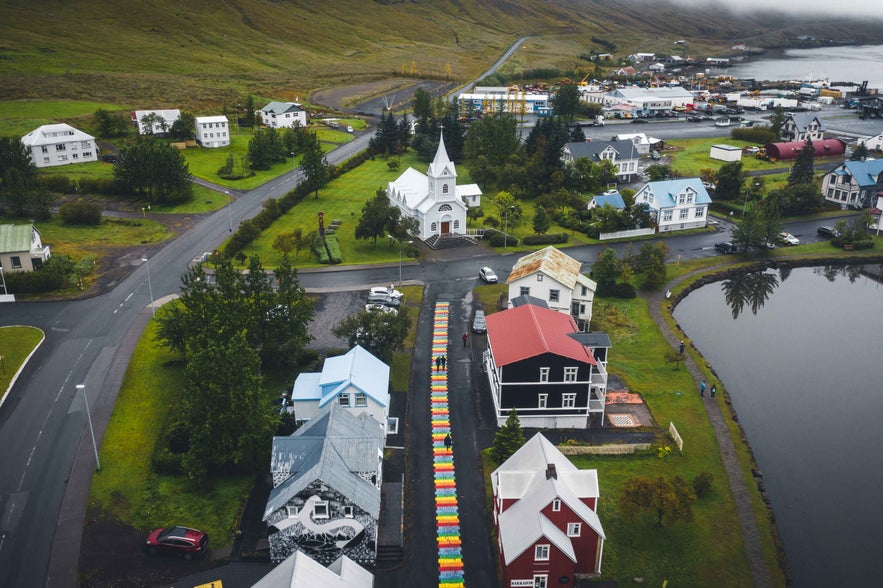 The Technical Museum of East Iceland provides visitors with a comprehensive understanding of the innovative history of Seydisfjordur, the East Iceland region, and Iceland as a whole. Its past and remaining exhibits offer tangible insights into historical moments that have shaped the country’s technological landscape, especially between 1880 and 1960.
The Technical Museum of East Iceland provides visitors with a comprehensive understanding of the innovative history of Seydisfjordur, the East Iceland region, and Iceland as a whole. Its past and remaining exhibits offer tangible insights into historical moments that have shaped the country’s technological landscape, especially between 1880 and 1960.
Visitors can discover different artifacts, machinery, and displays within the museum's exhibits that illustrate the region's rich industrial heritage. This includes the oldest telecommunications devices in the country, vintage fishing equipment, and electric-generating relics.
In addition to its permanent exhibits, the museum also hosts temporary displays, educational programs, and special events throughout the year.
Whether exploring the evolution of communication, examining transportation breakthroughs, or reflecting on the societal impacts of technology, the East Iceland Museum offers an informative journey through the region's technological heritage.
History of the Technical Museum of East Iceland
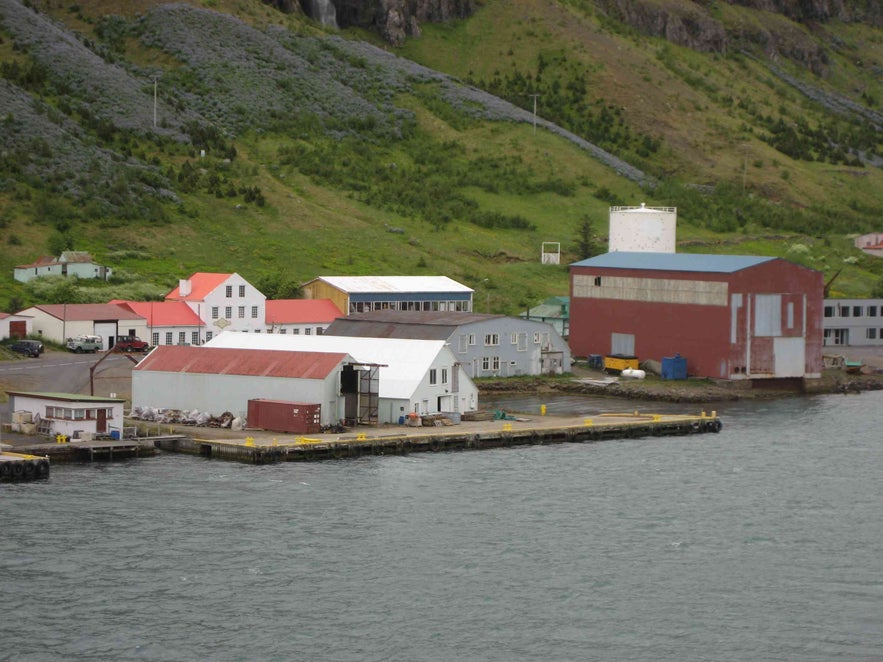
Photo from Wikimedia, Creative Commons, by David Stanley. No edits made.
Seydisfjordur, where the East Iceland Technical Museum is located, played a crucial role in advancing the country's different industrial and technological fields.
In 1906, Iceland's first telegraph cable and station was built in Seydisfjordur via networks from Scotland and the Faroe Islands. Later on, this telecommunication setup allowed Reykjavik, the country’s capital city, to be linked to the rest of the world.
The town kept pushing forward. In 1905 and 1907, the locals and migrants started building motorboats and opened the country’s oldest machine shop. Then, in 1913, a power plant was opened, introducing electricity and lighting to Seydisfjordur.
In the following years and decades, the town’s focus shifted to various industries, such as herring fishing, trading, and business services.
The museum's story began in 1976 when the government handed over Wathneshusid, the Old Telegraph Station, to the cultural attraction group. From then on, the museum started collecting and preserving more artifacts, objects, and relics related to technology until it formally opened its doors in 1984.
Today, the museum plays a vital role in preserving the region's technological and cultural heritage while educating the public about the contributions of past generations to its development.
The 2020 Landslide in Seydisfjordur
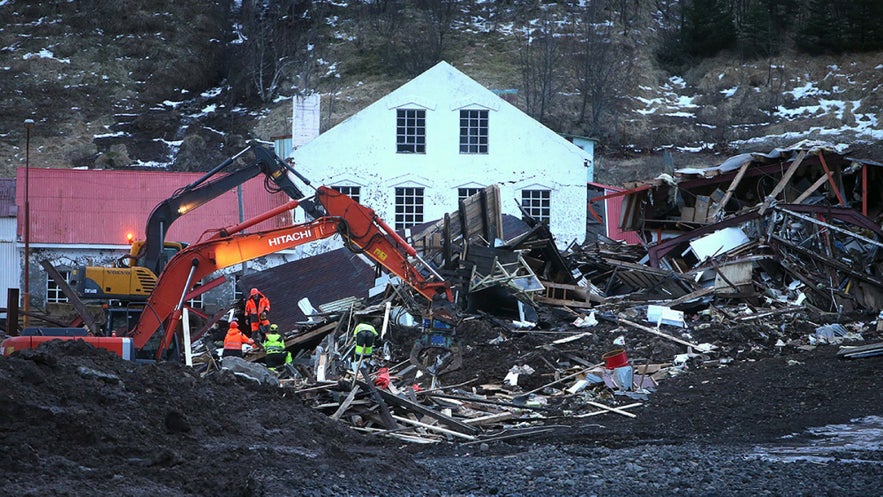
Photo from Tækniminjasafn Austurlands/ Technical Museum of East Iceland.
In December 2020, Seydisfjordur experienced Iceland’s largest landslide in any inhabited area in modern times. Triggered by heavy rainfall and geological instability, the landslide wreaked havoc on the landscape, causing mud and debris to cascade down the mountainside and the fjord.
The museum, situated in the path of the landslide, bore the brunt of the natural disaster. The force of the landslide resulted in permanent and structural damage to most museum buildings, rendering them unstable and unsafe for public access.
The community quickly came together to assess the damage and support recovery efforts. Despite significant losses, including damage to historical artifacts, the museum began rehabilitating the remaining functional buildings.
Through ongoing restoration efforts and community support, the museum looks forward to offering a renewed opportunity to explore Seydisfjordur's rich history and Iceland’s technological heritage in the future.
Current Exhibitions of the East Iceland Technical Museum
Although the current exhibitions of the Technical Museum of East Iceland aren't as comprehensive as its past displays, they remain excellent venues to learn about the region’s heritage.
The Landslide Project
The "Landslide Project" exhibition provides a detailed exploration of the impact left by the 2020 landslide in Seydisfjordur. It serves as a reminder of the challenges posed by natural disasters and the resilience of communities in their aftermath.
The exhibition features personal accounts and photographs of those who experienced the tragedy. Most of the project’s photos can be found on their website, but some are displayed in an outdoor gallery in Lonsleiru.
This project was led by a local photography center called Strandin Studio with photographers Katju Goljat and Matjaž Rušt.
Budareyri: The Story of Transformations
The "Budareyri: The Story of Transformations (Búðareyri – Saga umbreytinga)" exhibition at the Technical Museum of East Iceland provides an informative look at the history of Budareyri, a historic area in Seydisfjordur. Through interactive displays, visitors can learn about Budareyri's evolution over time.
The exhibition covers different periods and themes, such as the beginning of the settlement, the history of the Mechanical Shop, the harbor, the 2020 landslide, and more.
Art in Light
The Art in Light (List í ljósi) festival in Seydisfjordur is an annual event that celebrates the return of sunlight to the fjord after a few months of absence. During this festival held in February, Seydisfjordur transforms into a vibrant canvas as local and international artists illuminate the town with captivating light installations, projections, and performances.
In 2022, the Technical Museum participated in the festival for the first time with an installation titled "Verði ljós." This project is a collaborative effort from the museum’s staff, drawing inspiration from historical events from when the village had its first electric light.
Google Arts and Culture
The online exhibitions of the Technical Museum of East Iceland, available on Google Arts & Culture, offer a convenient way for people to explore the region's technological history from anywhere.
Visitors can browse two exhibits, entitled “The Boy From Djupivogur” and “--- Dashes & dots ··· the Modernization of Iceland by Telegraphy.” The first details the life and works of Johann Hansson, one of Iceland’s first mechanics. The latter showcases the introduction and advancement of telegraph technology in the country.
Both digital exhibits include informative content and multimedia features for an interactive and engaging experience.
Pre-Landslide Buildings and Features
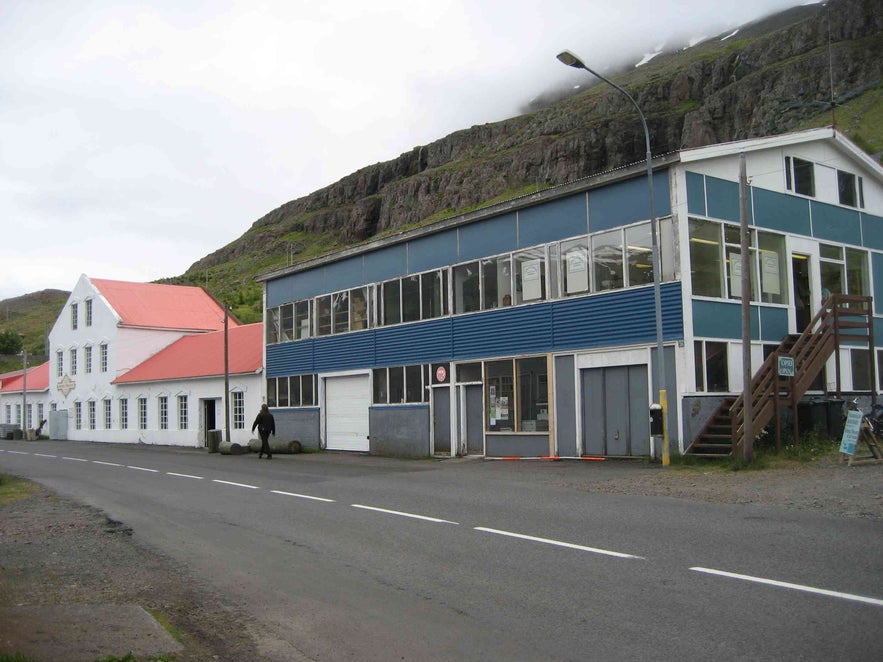
Photo from Wikimedia, Creative Commons, by David Stanley. No edits made.
Before the mudslide, the East Iceland Technical Museum comprised six historical buildings. However, many of these structures and their artifacts were either heavily or completely destroyed.
The only building that was not damaged was the Wathneshusid or Old Telegraph Station, although there are plans to move the house and artifacts to a better location in the future.
This part of the museum features an exhibition about the development of telegraph and telecommunications in Iceland. Its building was originally built in 1894 as a residence for a businessman named Otto Wathne.
The other museum buildings include Johann Hansson's Mechanical Shop (Vélsmiðjan), Renniverkstaedid, and smaller houses in the Budareyri area. Different objects, relics, and artifacts related to electric generation, shipbuilding, mechanics, printing, businesses, and other fields are found here.
After the landslide, some of the salvaged items were stored in warehouses, while others were slowly rehabilitated in the museum establishments' remaining functional and safe areas.
How to Visit the Technical Museum in East Iceland
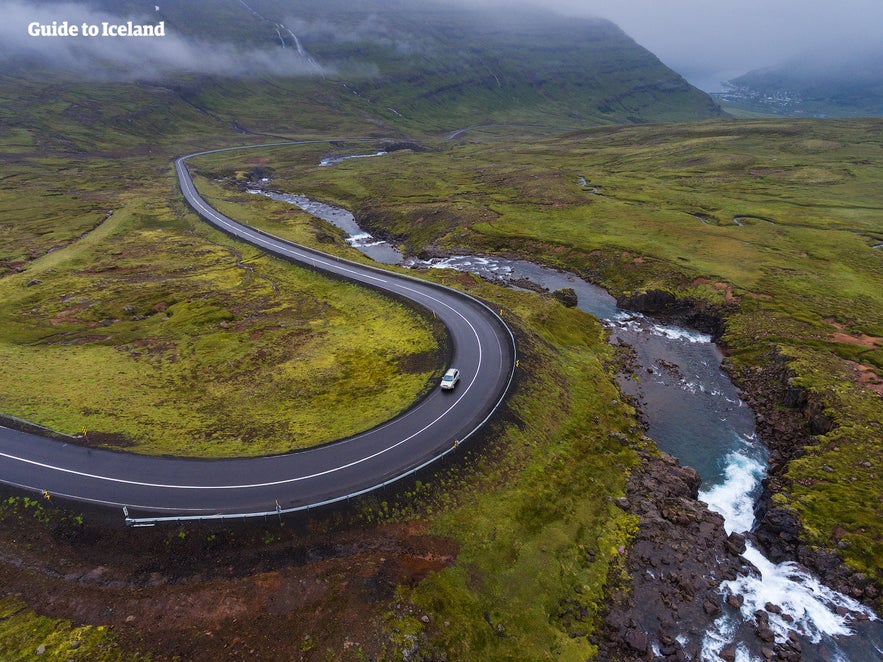 East Iceland is the farthest region from Reykjavik, so reaching the area would take longer. Seydisfjordur, in particular, is 411 miles (662 kilometers) from the Icelandic capital in a clockwise direction.
East Iceland is the farthest region from Reykjavik, so reaching the area would take longer. Seydisfjordur, in particular, is 411 miles (662 kilometers) from the Icelandic capital in a clockwise direction.
You can reach Seydisfjordur via the Ring Road or Route 1 if you're traveling by car. This is the national road of Iceland that goes around the country. Once you reach Egilsstadir, the capital town of East Iceland, you have to take Route 93, which will directly take you to Seydisfjordur.
Once you arrive in Seydisfjordur, the museum's location near the town center should make it relatively straightforward to find. Local signage, maps, and GPS navigation can further assist you in reaching your destination.
Top Places to Visit in East Iceland
After exploring Seydisfjordur and the Technical Museum of East Iceland, take the chance to see more exciting destinations in the region.
Egilsstadir
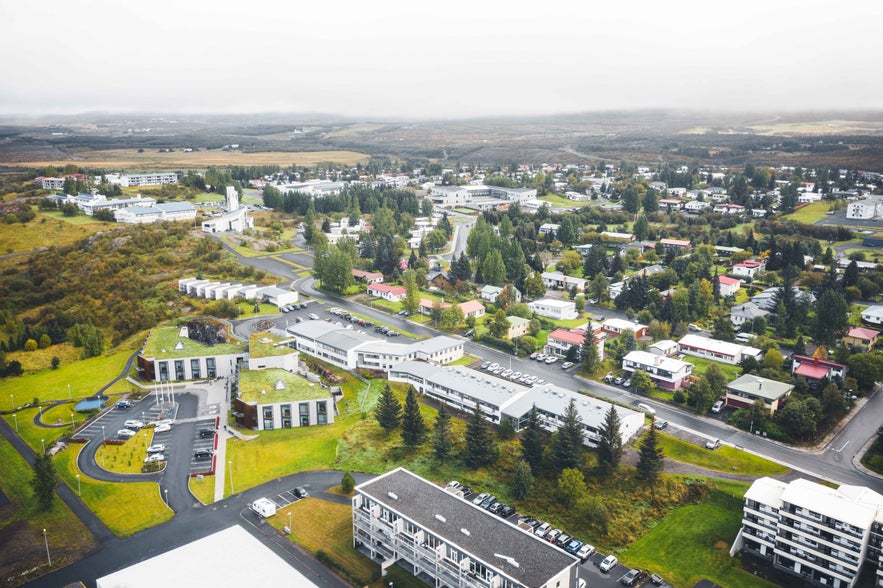 Egilsstadir serves as the bustling hub of East Iceland, offering visitors a charming blend of modern amenities and natural beauty. This picturesque town, just a 30-minute drive from Seydisfjordur, is nestled on the banks of a river and surrounded by stunning mountain vistas.
Egilsstadir serves as the bustling hub of East Iceland, offering visitors a charming blend of modern amenities and natural beauty. This picturesque town, just a 30-minute drive from Seydisfjordur, is nestled on the banks of a river and surrounded by stunning mountain vistas.
Visitors can explore local shops, cafes, and restaurants or embark on outdoor adventures such as hiking, fishing, and birdwatching while in town. Egilsstadir also boasts cultural attractions like the East Iceland Heritage Museum, where visitors can learn about the region's history and folklore.
If you plan on staying in the region for a few days, you can find great accommodations in Egilsstadir.
Hallormsstadaskogur Forest
Hallormsstadaskogur is Iceland's largest forest, covering over 740 hectares of wilderness. Its most common tree species are dwarf birch and mountain birch. Here, travelers can wander along scenic hiking trails, marvel at towering trees, and enjoy picnics by surrounding landscapes.
The forest is also home to diverse wildlife, particularly birds, making it a haven for birdwatchers and photographers alike.
Lake Lagarfljot
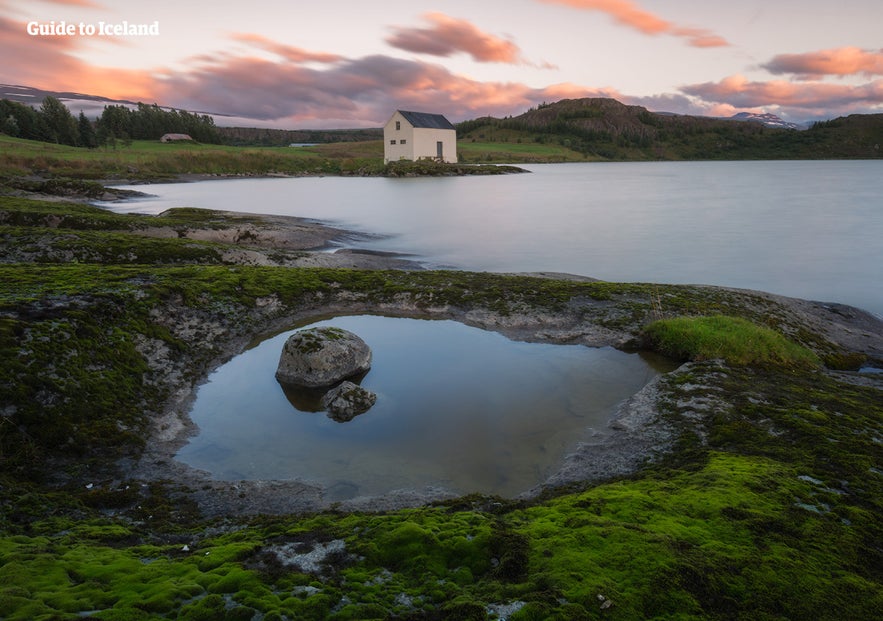 Lake Lagarfljot, nestled along Egilsstadir, is one of Iceland's largest and most scenic lakes. It is less than an hour’s drive from Seydisfjordur.
Lake Lagarfljot, nestled along Egilsstadir, is one of Iceland's largest and most scenic lakes. It is less than an hour’s drive from Seydisfjordur.
Legend has it that the lake is home to a mythical creature known as the Lagarfljot worm, which relates to Scotland's famous Loch Ness monster.
Visitors can explore the lake's shores on foot or by boat, taking panoramic views of surrounding mountains and glaciers. Fishing is also popular on Lake Lagarfljot, with ample opportunities to catch trout and Arctic char.
